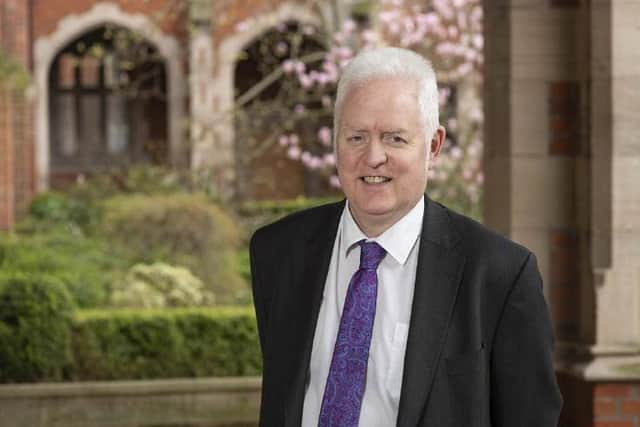Northern Ireland is bottom of cancer league table – it’s time to act says Queen’s University Belfast Professor Mark Lawler
and live on Freeview channel 276
As such patients aren’t being diagnosed and treated quickly enough and cancer continues to be the Province’s biggest killer. Charities like Cancer Research UK along with scientific and clinical leaders have long been calling for improved cancer services here.
Cancer researcher Professor Mark Lawler from Queen’s University said there was a “critical need” to reform cancer services in Northern Ireland.
Advertisement
Hide AdAdvertisement
Hide AdHe said: “The most recent cancer waiting times in Northern Ireland were the worst on record, with 62% of patients waiting longer than 62 days to start treatment for cancer following an urgent GP referral. This is 70% higher than pre-pandemic.


“We spend more on healthcare than anywhere else in the UK, but we tend to have poorer outcomes. Too often, it is not the amount that we spend but the way we spend it. We need to be strategic about healthcare spending in the places where it can make a real difference. For major killers such as cancer, the situation has become critical. Now, more than ever, we need to ensure that cancer is top of the health agenda in Northern Ireland.”
A new study by the International Cancer Benchmarking Partnership – a globally recognised expert group which is partnered with Cancer Research UK – looked at the relationship between consistency of cancer policy and improvements in five-year survival for seven cancers (colon, lung, oesophageal, ovarian, pancreatic, rectal and stomach) in 10 countries or jurisdictions across the world.
For six of the seven cancers studied, there was a correlation between consistent cancer control policies and better five-year survival for cancer patients over time. Denmark scored highest and had the highest increases in survival. Northern Ireland sits at the bottom of this league table, a situation not helped by having published only one cancer plan during the 20-year study period.
Advertisement
Hide AdAdvertisement
Hide Ad"The findings for Northern Ireland are deeply concerning,” said Professor Lawler. “While a second cancer plan was finally published in Northern Ireland on March 22 this year, to date a budget has not been allocated and implementation has stalled, not helped by the current political deadlock in Northern Ireland. If the cancer plan is not funded and implemented as rapidly as possible, we risk further compromising the care of cancer patients in Northern Ireland.”
He added: “As Chair of the ICBP, a cancer researcher at Queen’s University Belfast and the lead for a number of significant pan-European cancer initiatives, I am particularly disappointed in drawing attention to our latest research and the poor performance of Northern Ireland. A decade ago, we highlighted how much Northern Ireland had improved, with, for example, the best outcomes for breast cancer in the UK and international recognition in cancer research.”
He said that if the political deadlock could be broken a cancer solution could be found with “quickly and decisive” action and learning from examples like Denmark: “We must be brave, ambitious and visionary, harnessing the talent in Northern Ireland in cancer care, research and innovation and cancer policy. And we must be honest with the people of Northern Ireland, benchmarking where we currently are and how we can improve."